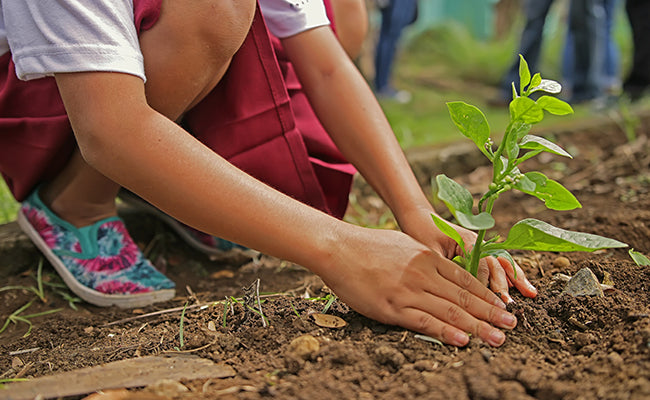
Sustainability has often been defined as meeting the needs of the present without compromising the ability of future generations to meet their own needs. The word “sustainability” shares the root of the word “sustenance”, which refers to the maintaining of someone or something in life or existence. A healthy relationship with the environment supports us and gives us life similarly to how healthy relationships with family, friends, and among communities, provide support and give us life. So, sustainability can be thought of as living in a way that creates and nourishes healthy relationships among all living things, now and in the future.
How do we know if something is sustainable? There are three main components of sustainability: society, economy, and environment. To be sustainable, each of these elements should be in harmony and improving one should not negatively impact another. Of course, sustainable solutions aren’t always easy to achieve, especially when the solution requires a high level of change.
Sustainability begins with the recognition that we depend on a healthy environment to provide us with our basic human needs: air, water, food, and shelter. Our society influences our economy through shared values. These values influence the kinds of things we buy and how much of it we buy. For example, when we buy new clothes, are we buying them because the clothes we have are worn out or we’ve outgrown them, or are we buying them simply because we saw something in a store that we like or there’s a new style that we’d like to try? Some of these factors are based on need: we need clothes to protect us from the elements and keep us warm. Needs are fundamental for human survival or purpose. Wants on the other hand, are seen as a human desire to get something additional, and are influenced by factors such as personal values, social group, or broader social factors like media and advertising. Humans have other needs, too, beyond those which keep us alive such as freedom; a sense of personal identity and purpose; love and belongingness. Balancing our personal well-being with the well-being of others and the environment can be challenging, but it essential to a sustainable way of life.
The needs of individuals, communities, ecosystems, and the entire world, today, are equally as important as the needs of future generations. Every day, whether we realize we are doing it or not, we make decisions about what natural minerals to use, how fast to use them, and what to do with them when we’re done. Some of these choices are small, such as riding a bike or walking to school rather than driving, compositing food scraps so they can be used to help plants grow, or turning the lights off when leaving a room, or the heat down to conserve fuel. Some are much larger, such as ones that we make when we get older. What size family will you have? Will you purchase a more fuel efficient car, or maybe an electric car? Will you support government policies that encourage sustainability?
The choices we make today, big or small, will impact the future. Therefore, our choices must ensure that social institutions, the economy, and the environment will be well-supported for future generations. In our lifetimes, each of us has the opportunity to help create a world that offers well-being, good health, material comfort, education, and equality, while protecting these opportunities for future generations. Doing so requires us to think differently and live differently, but the rewards for making these changes are immense.